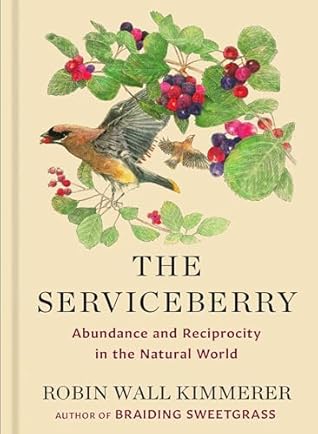More on this book
Community
Kindle Notes & Highlights
Read between
August 19 - August 20, 2025
Recognizing “enoughness” is a radical act in an economy that is always urging us to consume more.
Data tell the story that there are “enough” food calories on the planet for all 8 billion of us to be nourished. And yet people are starving. Imagine the outcome if we each took only enough, rather than far more than our share.
I suppose in an industrial economy “production” is the source of the flow, rooted in human labor and the conversion of earthly gifts to commodities. But so often that production is at the cost of great destruction. When an economic system actively destroys what we love, isn’t it time for a different system?
When the mother nurses her child, the boundary of the individual self becomes permeable and the common good is the only one that matters. The maternal gift economy is a biological imperative. There is no meritocracy or earning of sustenance. Mothers do not sell their milk to their babies, it is pure gift, so that life can continue. The currency of this economy is the flow of gratitude, the flow of love, literally in support of life.
Why then have we permitted the dominance of economic systems that commoditize everything? That create scarcity instead of abundance, that promote accumulation rather than sharing?
In a gift economy, wealth is understood as having enough to share, and the practice for dealing with abundance is to give it away.
Sustain the ones who sustain you and the Earth will last forever.
I lament my own immersion in an economy that grinds what is beautiful and unique into dollars, converts gifts to commodities in a currency that enables us to purchase things we don’t really need while destroying what we do.
Sweet water, a free gift of the Earth, is pirated by faceless corporations who encase it in plastic containers to sell. And now many can’t afford what was previously free, and we incentivize wrecking public waters to create demand for the privatized.
I want to be part of a system in which wealth means having enough to share, and where the gratification of meeting your family needs is not poisoned by destroying that possibility for someone else. I want to live in a society where the currency of exchange is gratitude and the infinitely renewable resource of kindness, which multiplies every time it is shared rather than depreciating with use.
After all, what we crave is not trickle-down, faceless profits but reciprocal, face-to-face relationships, which are naturally abundant but made scarce by the anonymity of large-scale economics.


